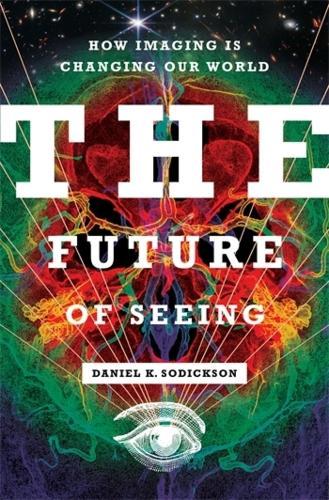Overview
Over the centuries, we have learned to peer into what was once invisible. Imaging devices like cameras, telescopes, microscopes, and MRI machines map the world around, beyond, and within us in ways the naked eye could never see. In so doing, these technologies have transformed our understanding of our place in the universe and our conception of our own bodies-and we may be on the cusp of an even greater revolution. Daniel K. Sodickson-a physicist and biomedical imaging innovator-explores the rich history and surprising future of vision, from the evolution of eyes to emerging high-tech devices. Beginning in the early oceans, when organisms first developed sight, The Future of Seeing tells the stories of the many remarkable tools people have invented to extend our natural vision. Ranging from the tales of brilliant inventors to profiles of everyday people, this book shows how imaging has transformed the practice of medicine, reshaped the global economy, and complicated the notion of privacy. In the era of artificial intelligence, Sodickson argues, it will be reinvented even further, emulating not only our senses but also our brains. Inviting and eye-opening, The Future of Seeing is a revelatory look at what imaging teaches us about the way we see the world, each other, and ourselves.
Full Product Details
Author: Daniel K. Sodickson
Publisher: Columbia University Press
Imprint: Columbia University Press
ISBN: 9780231209922
ISBN 10: 0231209924
Pages: 288
Publication Date: 14 October 2025
Audience:
Professional and scholarly
,
Professional & Vocational
Format: Hardback
Publisher's Status: Forthcoming
Availability: Awaiting stock

Reviews
The crux of AI’s transformation of medicine is that digital machine ‘eyes’ see things in images that we humans can’t. That’s just one example of how Daniel K. Sodickson, a leading and hyperinnovative imaging scientist, provides a very thoughtful, futuristic vision—for seeing! -- Eric Topol, author of <i>Super Agers: An Evidence-Based Approach to Longevity</i> The Future of Seeing revolves around the fundamental idea of seeing, how we have augmented that ability, and how seeing will evolve in the future. Daniel K. Sodickson beautifully and brilliantly guides us to be aware of seeing and imaging as what they really are—the mapping out of information in a way that is useful to us. -- Peter A. Bandettini, chief of the Section on Functional Imaging Methods, National Institute of Mental Health
The Future of Seeing revolves around the fundamental idea of seeing, how we have augmented that ability, and how seeing will evolve in the future. Daniel K. Sodickson beautifully and brilliantly guides us to be aware of seeing and imaging as what it really is—the mapping out of information in a way that is useful to us. -- Dr. Peter A. Bandettini, Chief, Section on Functional Imaging Methods, National Institute of Mental Health The crux of AI’s transformation of medicine is that digital machine ‘eyes’ see things in images that we humans can’t. That’s just one example of how Daniel K. Sodickson, a leading and hyperinnovative imaging scientist, provides a very thoughtful, futuristic vision—for seeing! -- Eric Topol, author of <i>Super Agers: An Evidence-Based Approach to Longevity</i>
Author Information
Daniel K. Sodickson is a physicist in medicine who has devoted his career to developing new ways of seeing. He is chief of innovation in radiology at NYU Grossman School of Medicine, past president and gold medalist of the International Society for Magnetic Resonance in Medicine, and a fellow of the US National Academy of Inventors.




